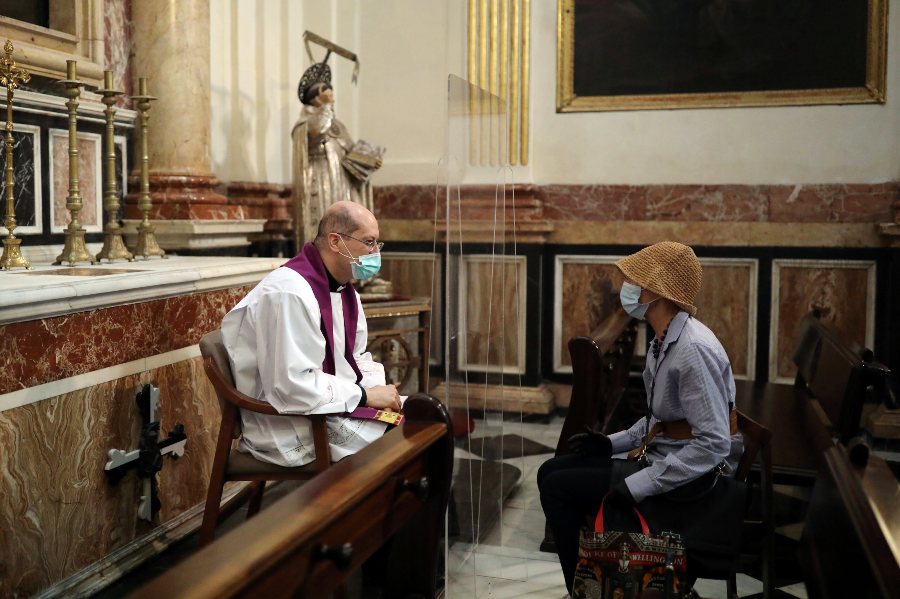The Vatican says general acquittal is still allowed during the pandemic
Offer general absolution to the faithful without first personally confessing their sins. It can still be done in places that are seeing severe or rising levels of coronavirus infections, a Vatican official said.
While "individual confession remains the ordinary way of celebrating this sacrament". The serious situations caused by the pandemic can be considered cases of "grave necessity". They allow other solutions, said the regent of the Apostolic Penitentiary, a Vatican court that deals with issues of conscience. Collective absolution, without prior individual confession. It cannot be given except in the case of imminent danger of death or grave necessity, according to the Code of Canon Law. The Apostolic Penitentiary issued a note on March 20, 2020, stating that there will be cases of grave need. Who meet the criteria of general acquittal, especially in the places most affected by the pandemic and contagion.

The priest told Vatican Radio on March 10 that the note remained valid, and his guide was intended for bishops and priests "in the places most affected by the pandemic contagion and until the phenomenon recedes". The indications in the document are "unfortunately still relevant, where it appears that recently there has been a dramatic increase in the (spread) of the virus," he said.
Serious situations caused by the pandemic can be considered cases of "grave necessity"
The monsignor said the pandemic meant the Apostolic Penitentiary was running its annual one-week online training course. Nearly 900 priests and seminarians close to ordination from all over the world took part in the course on March 8-12. These topics concern the importance of the internal forum and the inviolability of the sacramental seal. “The purpose of the course is not to train 'specialists of the sacred', priests focused on themselves" in formalizing their juridical and theological competence. “But ministers of God through whom all those who turn to them in the confessional can really experience firsthand. The greatness of divine mercy is to walk away feeling at peace and even more certain of God's mercy, ”he said.
The radio station asked Monsignor L about the significance and importance of the seal's inviolability sacramental of confession. Reiterated once again in a document published in 2019. That document was written in light of the efforts of some states and countries to challenge the secrecy of the sacrament. In reaction to the Catholic Church's clerical sexual abuse crisis. Given the "direct attacks and attempts to contest its principles", said the monsignor, "it is essential that priests as ministers of the sacrament together with all the faithful are well aware of the inviolability of the sacramental seal, that is, of that special secret that protects what is said in confession ”as indispensable for the sanctity of the sacrament and for imparting justice and charity to the penitent.
"Let it be clear, however, that if the church does not want and cannot under any circumstances make an exception to this obligation that binds the confessor, it does not in any way constitute some kind of connivance or cover for evil," he said. “Rather, defending the sacramental seal and the sanctity of confession represent the only true antidote to evil”.